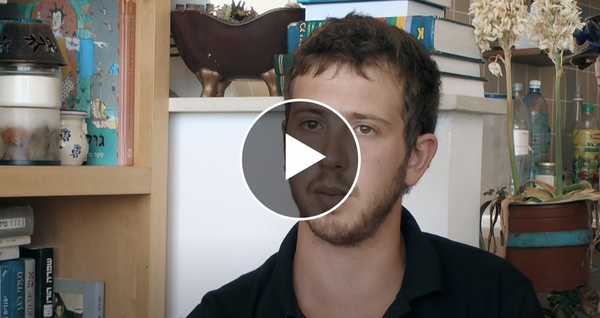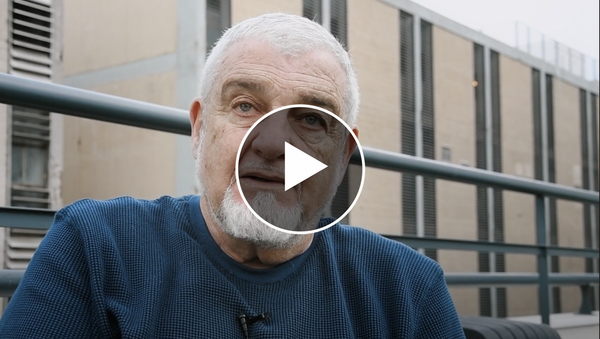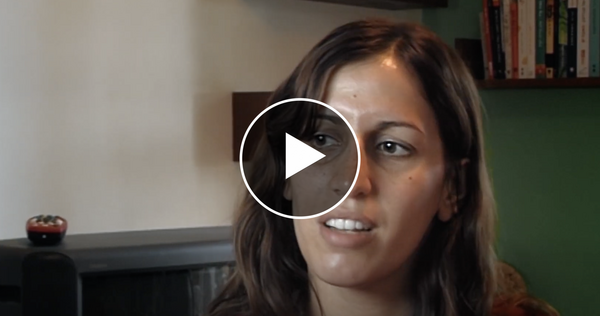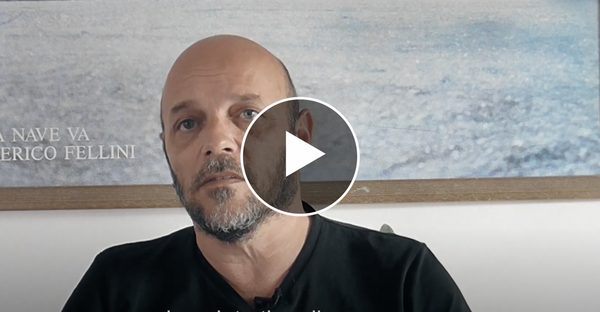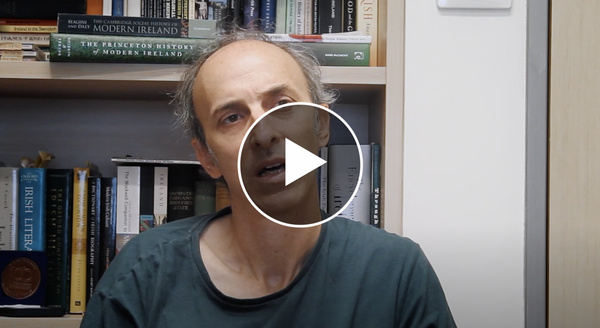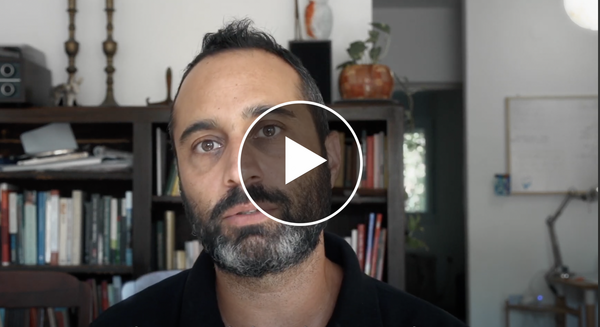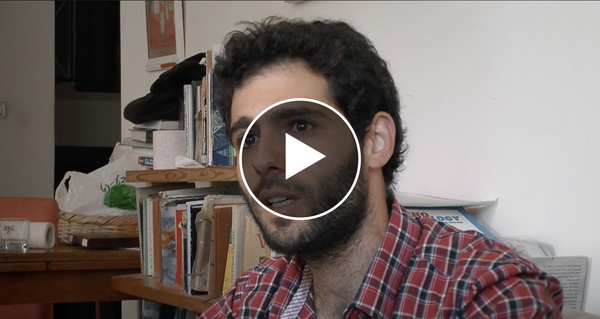Newsletter
Jun
2
2023
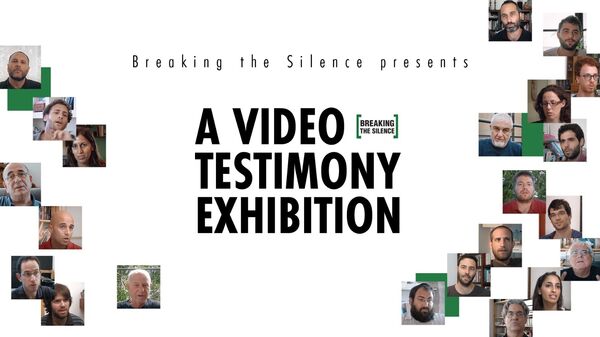
Dear Reader,
This week marks the 56th anniversary of Israel’s occupation of the West Bank in the wake of the 1967 War. Today, we’re sending you a selection of video testimonies curated by the Israeli veterans’ group Breaking the Silence, featuring soldiers who have served in the occupied Palestinian territories. These testimonies, filmed by Alon Sahar, were originally showcased at a December 2022 exhibition at ResoBox in New York City
The Israeli government has long tried to discredit ex-soldiers who speak out against the abuses they witnessed—and perpetrated—during their military service. Breaking the Silence in particular has become a favorite target of right-wing political action groups, media figures, and politicians. The group’s leaders have faced accusations of being foreign agents or lying in their recorded testimonies; more recently, the foreign funding of Israeli nonprofits like Breaking the Silence has come under scrutiny (something you can read more about in tomorrow’s Jewish Currents News Bulletin).
Despite these attacks, Breaking the Silence has continued trying to draw international attention to the brutality of life in the occupied territories. The testimonies below are organized around the different ways that Israeli soldiers manage and control Palestinians, addressing when and how soldiers decide to open fire on Palestinian civilians, their arbitrary arrest and detention policies, and how they restrict freedom of movement, loot stores, and abuse children. These testimonies speak to the day-to-day military management of life across the occupied territories, demonstrating that these stories of abuse and cruelty are not exceptional, but inherent to the machinery of occupation.
Starting today, the video testimonies will be available to Jewish Currents readers for one month; you can watch them here and at the links below.
Best,
The Editors
“Mass arrests are usually combined with searches. The idea is that there’s general intelligence that something’s happening in a certain area, and then they send in a lot of forces to take over. They start going from house to house, taking the men out, arresting everyone from the age of, say, 15 and older. After two days of that, there’s an entire part of the city where there are no men at home. The families remain, but only women and children.”
“I saw quite a few corpses during my service. There was kind of a fetish in seeing them, looking at them up close. There were even people who took pictures with them. Why would someone want to see a corpse, get close to it, take a picture of it or with it? This is just my interpretation, but . . . in those cases, I think it has to do with wanting to see what you did.”
“The procedure was that any building that allows terrorists to hide inside [it] has to be torn down. Now, this was a very large building in Nablus, some ten stories high. There were many apartments, many people living inside . . . We went up a hill overlooking the building, and at around 6:00 am, the building was supposed to be blown up. We made an announcement: ‘Everyone go outside.’ Tenants had an hour to vacate the building. And we blew it up . . . It was a collective punishment in every sense.”
“The father opened the door wearing a robe. We went inside. The mother stood in the corner with a child in her arms. The first thing I remember is the woman’s gaze: She looked at me, and I was ashamed. I felt like I had some nerve coming here. Lots of cops came in and started ransacking the place. Very quickly, everything was on the floor . . . I talked to the company commander, and he said there was no other way to do it. This is the only way.”
“I see [another soldier on patrol with me] catch the little boy, I’d say he was about seven or eight. He grabs him by the shirt, picks him up, presses him up against the wall. His feet are off the ground; he’s right in front of the officer’s face. He takes his M-16 and puts the barrel in the boy’s mouth and yells at him. The kid’s hysterically crying. That lasted a minute or two and [then] he let him go . . . That image stayed with me for a long time.”
“[Soldiers] completely looted a movie theater. Going in and seeing the theater, it was completely destroyed. That wasn’t out of the ordinary . . . at night, I remember people opening posters they’d found. They liked seeing posters in Arabic for movies they knew, trendy movies from the late ’‘80s. Retro stuff, like Rambo, Chuck Norris, action films. They thought it was cool that they had it in Arabic as a souvenir.”
“One of my strongest memories is us firing at Abu Snena [a Palestinian village near Hebron]—and then we start hearing the ambulances, the Palestinian Red Cross, moving around the neighborhood. They’re risking their lives while we’re shooting at the neighborhood. That’s the moment when your mind puts two and two together: You realize that . . . people have probably been injured by your fire, or the machine gun next to you, or the grenade launcher next to it. You realize you’re not firing at an empty neighborhood, at empty houses; you’re firing at houses that people live in.”
“Orders were given on the radio to close off Jenin. The orders were simple: No one could enter the city, including a student who wanted to go to her exam. She begged; she’d prepared for her exam for who knows how long, she said. But I simply didn’t let her in . . . Tears filled her eyes and streamed down her cheeks, but she kept demanding to enter, and I was standing there, trying to project as much strength as she was showing, and continuing to refuse her entry, with my helmet, vest, M-16 rifle . . . At some point, she gave in. She went to sit on a rock covered in mud, weeping.”
“You’re not really thinking about what’s right in terms of the relationship between you [and the settlers], like the politics of it. Someone offers you a cup of coffee, that’s great . . . Settlers bring you sweets and things like that, and then suddenly you hear that [the violent settler politician Baruch] Marzel is offering a pizza to anyone who shoots a Palestinian.”
“The border guard lifts the Palestinian’s leg and kicks him in the balls. Destroys him. The Palestinian is writhing on the ground, and the border guard is yelling at him ‘Get up, get up!’ [The border guard] stands up against the wall and kicks him in the balls again . . . I see one of the Palestinians sitting on the ground and they’re kicking him. The Palestinians don’t know what’s going on, they’re blindfolded and handcuffed, screaming terrible screams that still haunt me.”
